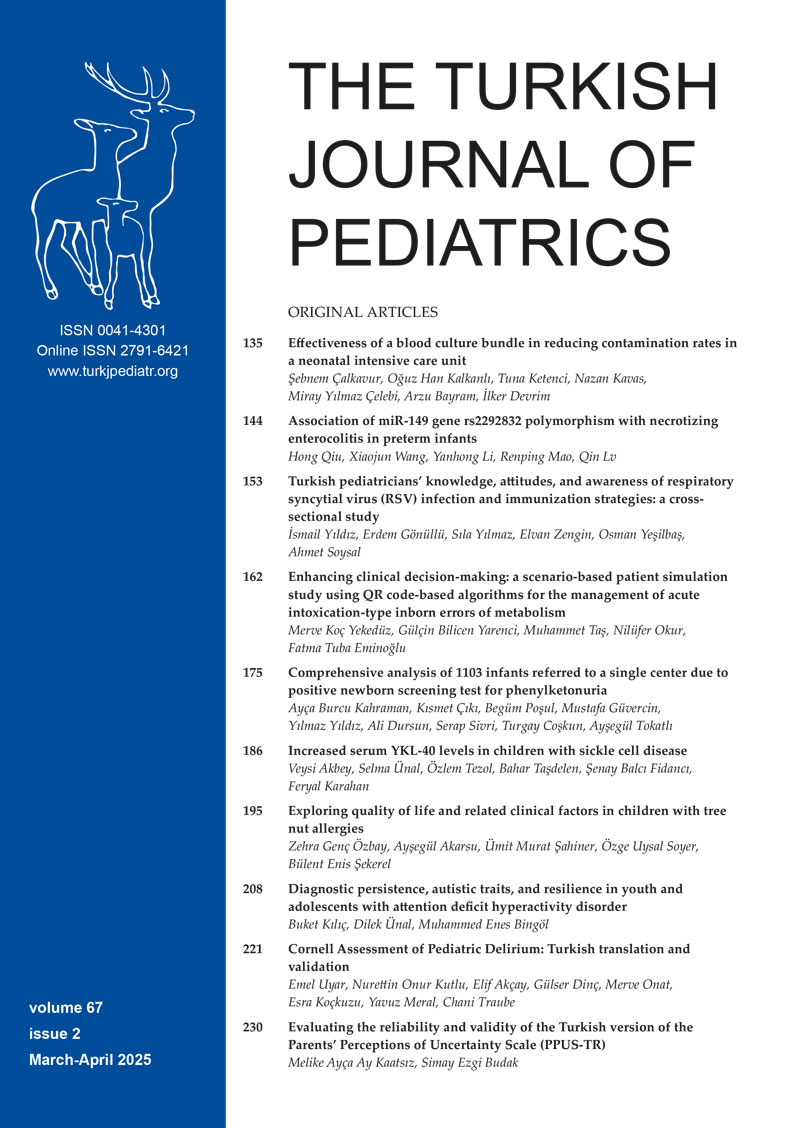Introduction
To the Editor,
We read with great interest the article titled ”Adaptation of the Problem Areas in Diabetes-Teen [PAID-T] Scale into Turkish and examination of its psychometric properties: a validity and reliability study” recently published in your esteemed journal.1 The authors provide an insightful discussion on diabetes distress in adolescents with type 1 diabetes mellitus (T1DM), emphasizing the reliability and moderate validity of the Turkish PAID-T scale. We commend the authors for their effort to adapt a validated tool to the Turkish context, which will undoubtedly contribute to improving psychosocial care in pediatric endocrinology.
As the study demonstrated, adolescents with T1DM frequently experience emotional distress linked to concerns about diabetes-related complications, feelings of isolation, and the pressure to adhere to strict treatment regimens. This distress not only affects their mental health, with higher rates of anxiety and depression, but also impairs their ability to manage their condition effectively, as adolescents experiencing higher levels of emotional stress demonstrate poorer glycemic control.2 While the study effectively highlights diabetes distress as a critical issue, it does not address the broader role that adolescent medicine specialists can play in managing interconnected challenges. Adolescent medicine specialists are uniquely positioned to address the multifaceted needs of adolescents with chronic illnesses. By incorporating screening for mental health conditions such as depression and eating disorders, addressing challenges related to adherence to treatment challenges, and evaluating readiness for transition into adult care, we can provide a holistic approach that complements the work of pediatric endocrinologists. Instruments like the Turkish PAID-T, along with the Diabetes Eating Problem Survey3, can serve as valuable tools within this broader framework, helping to identify diabetes distress as part of a comprehensive assessment of adolescent health. By recognizing the mental health challenges associated with diabetes, we can create a caring environment that supports adolescents more effectively, improving their overall quality of life and diabetes outcomes.
To strengthen the impact of future research, we recommend exploring how diabetes distress interacts with other psychosocial and behavioral factors. Additionally, collaborative efforts between pediatric endocrinologists and adolescent medicine specialists could enhance the implementation of targeted interventions, ensuring that adolescents with T1DM receive the support they need during this critical developmental period.
Thank you for the opportunity to contribute to this important conversation.
Source of funding
The authors declare the study received no funding.
Conflict of interest
The authors declare that there is no conflict of interest.
References
- Sarı SA, Agadayı E, Çelik N, Karahan S, Kömürlüoğlu A, Döğer E. Adaptation of the Problem Areas in Diabetes-Teen Scale into Turkish and examination of its psychometric properties: a validity and reliability study. Turk J Pediatr 2024; 66: 588-598. https://doi.org/10.24953/turkjpediatr.2024.4535
- van Duinkerken E, Snoek FJ, de Wit M. The cognitive and psychological effects of living with type 1 diabetes: a narrative review. Diabet Med 2020; 37: 555-563. https://doi.org/10.1111/dme.14216
- Atik Altınok Y, Özgür S, Meseri R, Özen S, Darcan Ş, Gökşen D. Reliability and validity of the diabetes eating problem survey in Turkish children and adolescents with type 1 diabetes mellitus. J Clin Res Pediatr Endocrinol 2017; 9: 323-328. https://doi.org/10.4274/jcrpe.4219
Copyright and license
Copyright © 2025 The Author(s). This is an open access article distributed under the Creative Commons Attribution License (CC BY), which permits unrestricted use, distribution, and reproduction in any medium or format, provided the original work is properly cited.















